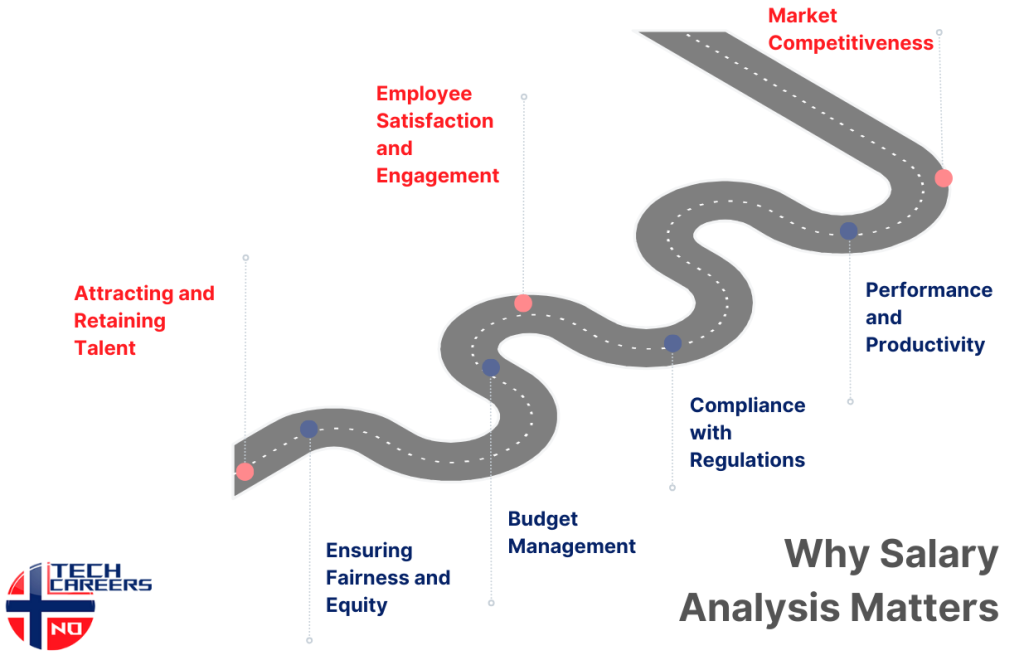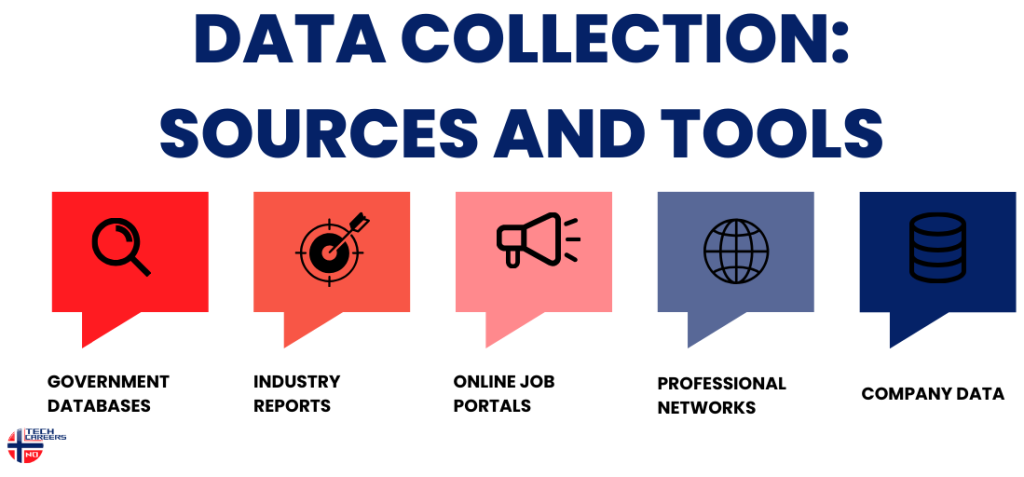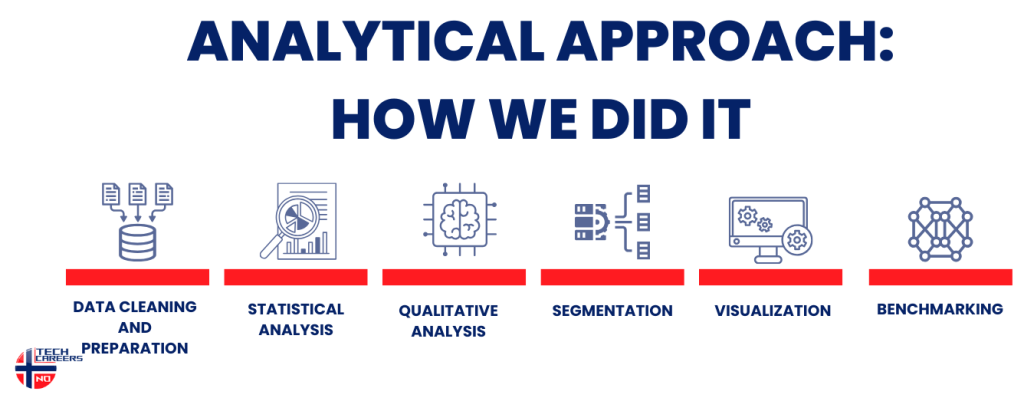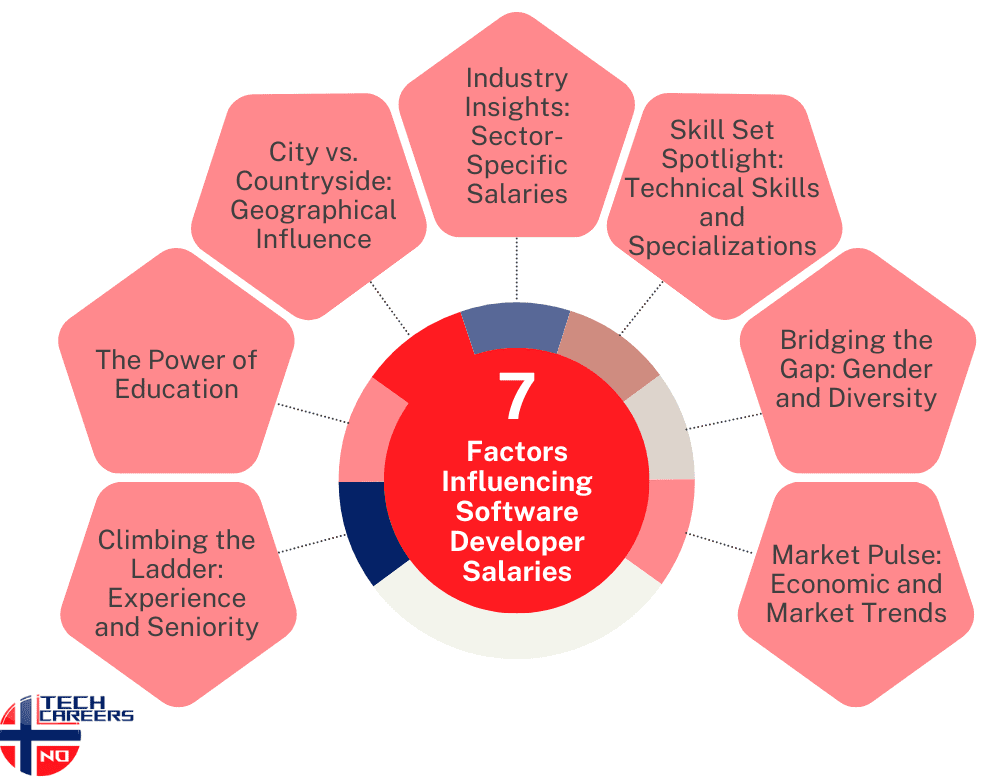
Norway, with its thriving economy and emphasis on technology, has become a notable hub for software development. The country’s commitment to innovation and high living standards make it an attractive destination for tech professionals worldwide.
The demand for software developers in Norway is robust, driven by the need for digital transformation across various sectors, including finance, healthcare, and logistics. This demand has led to competitive compensation packages for software developers, reflecting the country’s high cost of living and the value placed on technological expertise.
A key aspect of this landscape is the software developer salary Norway offers, which is among the highest in Europe. According to recent data from Witted’s Developer’s salary levels in Norway 2023, the Norway average salary software developer stands significantly higher compared to many other European countries. Junior developers can expect starting salaries that comfortably exceed the European average, while experienced developers and specialists can command salaries that position them in the upper echelons of income earners.
A supportive governmental framework, access to high-quality education, and a strong emphasis on research and development bolster Norway’s tech ecosystem. Cities like Oslo, Bergen, and Trondheim are at the forefront of this digital revolution, hosting a multitude of startups and established tech companies. The Norwegian government also provides various incentives for tech innovation, further fueling the growth of the software development sector.
Why Salary Analysis Matters
Salary analysis is a critical aspect of workforce management and strategic planning for any organization. It involves the systematic evaluation of compensation structures, ensuring that employees are fairly and competitively compensated for their skills, experience, and contributions. Here are several key reasons why salary analysis matters:
Attracting and Retaining Talent:
- Competitive salaries are essential for attracting top talent to your organization. By regularly analyzing and adjusting salary scales, companies can ensure they remain attractive to potential hires. Additionally, fair compensation is a significant factor in employee retention. When employees feel they are adequately compensated, they are more likely to stay with the company, reducing turnover rates and the associated costs of recruiting and training new staff.
Ensuring Fairness and Equity:
- Salary analysis helps identify and address pay disparities within an organization. It ensures that employees are paid equitably regardless of gender, race, or other potentially discriminatory factors. This promotes a culture of fairness and inclusivity, which is crucial for employee morale and the organization’s reputation.
Budget Management:
- Understanding salary trends and structures allows organizations to manage their payroll budgets effectively. By anticipating salary increases and understanding market trends, companies can allocate resources more efficiently and avoid unexpected financial strain.
Compliance with Regulations:
- Many jurisdictions have laws and regulations regarding fair pay and wage transparency. Regular salary analysis helps ensure that an organization remains compliant with these regulations, avoiding legal issues and potential penalties.
Performance and Productivity:
- When employees feel that their compensation reflects their performance and the value they bring to the organization, they are more motivated and productive. Salary analysis can help align compensation with performance metrics, fostering a high-performance culture.
Market Competitiveness:
- In a rapidly changing job market, staying competitive requires constant vigilance. Salary analysis provides insights into market trends and competitor practices, enabling organizations to make informed decisions about their compensation strategies. This proactive approach ensures that the company remains a desirable place to work.
Employee Satisfaction and Engagement:
- Fair and competitive salaries contribute significantly to overall employee satisfaction. When employees feel valued and fairly compensated, their engagement levels increase, leading to higher job satisfaction, better performance, and a positive work environment.
Salary analysis is not just about numbers; it’s about people. It ensures that employees feel valued and fairly treated, which in turn fosters loyalty, engagement, and high performance. For organizations, it means staying competitive, compliant, and financially healthy. Conducting regular salary analysis is particularly important in identifying trends in the highest paying jobs in Norway, ensuring that your organization remains an attractive option for top talent. Therefore, making salary analysis a regular practice is vital for the long-term success of any organization.

Methodology
Data Collection: Sources and Tools
The foundation of a robust salary analysis lies in the quality and comprehensiveness of the data collected. Our data collection process involved multiple reliable sources to ensure accuracy and relevance. These sources included:
Government Databases:
- Official labor statistics and reports from government agencies provided a solid base of verified data. This included information on average salaries, employment rates, and economic trends within Norway.
Industry Reports:
- We utilized industry-specific salary surveys and reports to gain insights into compensation trends across different sectors. These reports were sourced from reputable market research firms and industry associations.
Company Data:
- Internal salary data from organizations operating in Norway were gathered to provide a real-time view of compensation practices. This included anonymized salary information across various roles and levels within companies.
Online Job Portals:
- Data from job listing websites and career platforms were analyzed to understand current salary offerings for various positions. These platforms provided real-time information on the highest paying IT jobs in Norway.
Professional Networks:
- Information was also collected through professional networks and forums where industry experts share insights and trends. This qualitative data helped supplement our quantitative findings.
The tools used for data collection included web scraping tools for extracting data from online sources, database management systems for organizing and storing data, and survey tools for collecting primary data from companies and professionals.

Analytical Approach: How We Did It
Our analytical approach was designed to ensure a comprehensive and accurate analysis of salary trends. Here’s how we did it:
Data Cleaning and Preparation:
- The collected data underwent a thorough cleaning process to remove any inconsistencies, duplicates, and irrelevant information. This step was crucial to ensure the accuracy of our analysis.
Statistical Analysis:
- Various statistical techniques were applied to analyze the data. This included descriptive statistics to summarize the data, and inferential statistics to conclude the population from our sample. We also used regression analysis to identify factors influencing salary levels.
Benchmarking:
- Salaries were benchmarked against industry standards and historical data to identify trends and outliers. This helped in understanding how salaries for the highest paying jobs in Norway compare to those in other regions or countries.
Segmentation:
- Data was segmented based on various parameters such as industry, job role, experience level, and location. This allowed for a more granular analysis and helped identify specific trends within different segments.
Visualization:
- Advanced data visualization tools were used to present the findings in an easily understandable format. Graphs, charts, and heatmaps were employed to highlight key trends and insights.
Qualitative Analysis:
- In addition to quantitative analysis, qualitative methods were used to interpret the data. This included reviewing industry reports, expert opinions, and case studies to provide context and deeper insights into the findings.
By combining these methodologies, we ensured a comprehensive analysis of salary trends, particularly focusing on identifying and understanding the highest paying jobs in Norway. This rigorous approach enabled us to provide actionable insights for organizations and professionals alike.

Factors Influencing Software Developer Salaries
Understanding the various elements that impact software engineer salary Norway is crucial for both job seekers and employers. This section delves into the key factors shaping the compensation landscape for developers, incorporating insights on data scientist salaries, Norway programmer salaries, backend developer hourly rates, junior software developer hourly rates, and full stack developer salaries in Norway.
Climbing the Ladder: Experience and Seniority
Experience is a primary determinant of salary in the tech industry. Junior software developers, typically with less than two years of experience, often start at an hourly rate lower than their more experienced counterparts. For instance, the hourly rate for a junior software developer in Norway can range from NOK 200 to NOK 300. As developers gain more experience and move into mid-level or senior roles, their salaries increase significantly. Senior developers with over five years of experience can expect salaries that reflect their advanced skills and leadership capabilities. This is true for roles across the board, including data scientist salary Norway, which tends to increase substantially with experience.
The Power of Education
Educational background plays a significant role in determining a developer’s salary. Those with a bachelor’s degree in computer science or a related field can secure entry-level positions with competitive salaries. However, developers with advanced degrees, such as a master’s or PhD, often have a higher earning potential. Additionally, specialized certifications in areas like cloud computing, cybersecurity, or data science can further boost a developer’s salary. For example, data scientists in Norway, who often possess advanced degrees and specialized skills, tend to command higher salaries compared to general software developers. This advanced education also impacts the overall Norway programmer salary landscape.
City vs. Countryside: Geographical Influence
Geographical location within Norway can lead to variations in salary. Developers working in major cities such as Oslo, Bergen, or Trondheim generally receive higher salaries than those in rural areas. This disparity is due to the higher cost of living and greater demand for tech talent in urban centers. For instance, the salary for a full stack developer in Oslo might be significantly higher than the same role in a smaller town. Consequently, full stack developer salary Norway can vary widely depending on the specific city or region.
Industry Insights: Sector-Specific Salaries
The industry in which a developer works also affects their salary. Developers employed in high-demand sectors such as finance, healthcare, or technology tend to earn more than those in less lucrative industries. For example, a backend developer working in the finance sector might have a higher hourly rate compared to one working in education. The backend developer hourly rate in Norway can range from NOK 300 to NOK 500, depending on the industry and level of expertise. These sector-specific differences are reflected across various roles, including the broader category of Norway programmer salary.
Skill Set Spotlight: Technical Skills and Specializations
Specialized technical skills are highly valued in the tech industry. Developers with expertise in specific programming languages, frameworks, or technologies can command higher salaries. For instance, proficiency in languages like Python, Java, or JavaScript is highly sought after. Full stack developers, who possess both front-end and back-end development skills, are particularly valuable and can expect higher salaries. In Norway, the salary for a full stack developer reflects this demand, often ranging from NOK 600,000 to NOK 900,000 annually. This demand for specialized skills also significantly impacts the overall Norway programmer salary.
Bridging the Gap: Gender and Diversity
Gender and diversity can also influence salary levels. Despite efforts to close the gender pay gap, disparities still exist. Female developers, on average, may earn less than their male counterparts. Promoting diversity and inclusion in the workplace not only helps bridge this gap but also leads to a more innovative and productive work environment. Companies that prioritize diversity often see a positive impact on overall salary structures, including the data scientist salary in Norway.
Market Pulse: Economic and Market Trends
Economic conditions and market trends play a significant role in shaping salaries. The rise of remote work has introduced global competition, impacting salary expectations. During economic downturns, salary growth may stagnate, while periods of economic prosperity can lead to higher wages. Staying informed about market trends is essential for both developers and employers to make informed decisions about salary negotiations. This is particularly true for roles like full stack developer salary in Norway, which can be influenced by broader economic conditions.
By understanding these factors, developers can better navigate their career paths and employers can create competitive compensation packages to attract top talent. The dynamic nature of the tech industry in Norway, particularly regarding software developer salary Oslo and other tech jobs in Norway, requires continuous adaptation and awareness of these influencing factors.

Take the Next Step in Your Career or Company Growth
Whether you're a tech professional aiming to advance your career or an employer striving to attract and retain top talent, understanding salary trends and factors influencing compensation is crucial. Stay competitive and informed with our comprehensive salary analysis with us.


 Next Post
Next Post